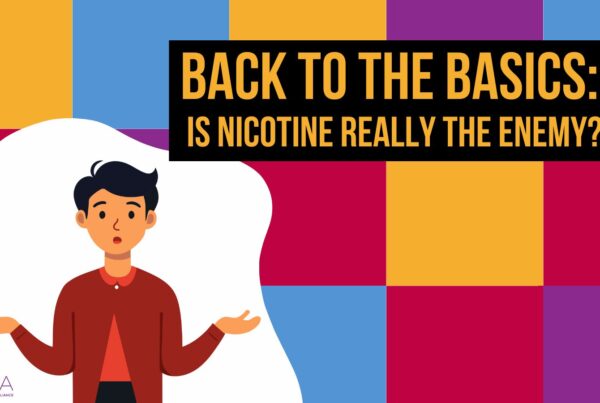The Harms Caused by Smokeless Tobacco and The Hope Brought by Harm-Reduced Products
While tobacco risks are often associated with cigarettes and smoke, a huge category of tobacco-related harm – particularly in South Asian countries – comes from smokeless tobacco products (SLTs). This is also true for Bangladesh. With the smoking rate in Bangladesh already at a sizeable 17%, its smokeless tobacco use is at an even higher 28%.

Among the widely available smokeless tobacco products across the nation, the most commonly used is zarda (24.3%). Chewed with betel leaf, lime and areca nut, zarda is manufactured commercially and consists mainly of tobacco – along with lime, spices, vegetable dye and areca nut. Other comparatively less popular SLT products include gul (5.3%), sada pata (1.8%) and khoinee (1.5%).
Despite the prevalent use and high risk of SLT, Bangladesh shows little sign of reducing its consumption. In fact, while only 0.4% of women smoke compared to 34.1% of men, the gender division of smokeless tobacco is highly and evenly split with 28.5% of men and 29.5% of women using SLT products. These high rates are also unfortunately reflected in tobacco-related diseases, with an astounding 61.6% of lip and oral cavity cancer deaths in 2021: 57% of men and 72% of women.
Where smokeless tobacco presents a problem, smokeless nicotine products can create a solution. As a harm-reduced alternative to SLT, products like nicotine pouches provide a realistic and experience-matching option. Yet this alternative cannot turn into reality without support from policymakers and the Bangladeshi government. Currently, Bangladesh does allow nicotine pouches but has banned the import of this product. Given that there is no local production of smokeless nicotine products, this effectively creates a total ban. In creating meaningful solutions, it is important that this situation changes so that nicotine pouches and other harm-reduced alternatives can work towards becoming viable products in the Bangladeshi market, competing with local SLT products in order to improve public health.
Related Posts
 Time to support Filipino vape law, not relitigate it
Time to support Filipino vape law, not relitigate it
Time to support Filipino vape law, not relitigate it
 Greens’ Plan To Legalise Nicotine Vapes Lauded
Greens’ Plan To Legalise Nicotine Vapes Lauded
Greens’ Plan To Legalise Nicotine Vapes Lauded
 Taiwan Vaping Ban Disappointing For Its Many Smokers
Taiwan Vaping Ban Disappointing For Its Many Smokers
Taiwan Vaping Ban Disappointing For Its Many Smokers
More about
Alcohol Harm Reduction
More about





